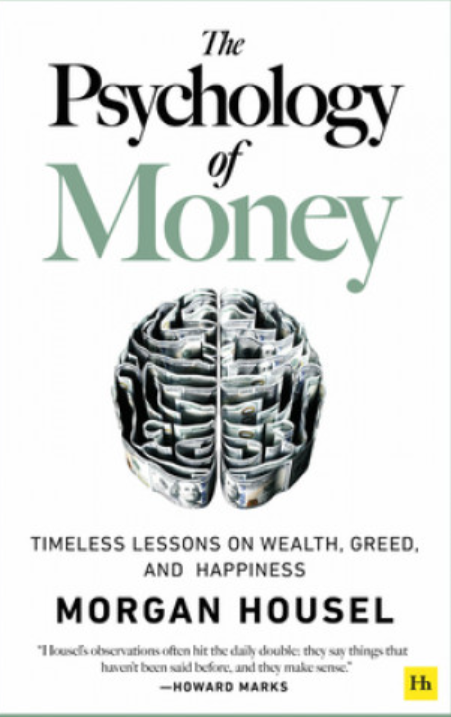Saving money is something many people wish to do, but sometimes people don’t know where to start when it comes to saving money. One book called “The Psychology of Money” by Morgan Housel helps identify ways to save on money and other money-saving tactics. In this summary blog post of The Psychology Of Money, we will show you some of the main ideas from this book along with reviewing the book as well.
The Psychology of Money book summary
The book Psychology of Money Timeless lessons on wealth, greed, and happiness highlights very interesting ways to save on money. There are around 19 different stories about how people think about money and how people can be more mindful with saving on money. It teaches very specific ways to save on money.

He does this by using a historical lens and telling personal stories about how people have thought about money in the past. Each of the chapters highlights the dumb things we have done with money while using a funny and comedic approach to it. Each chapter would also be a different story within the overall narrative of “what not to do with money” and “how you can get better at money management”.
This approach is fairly obvious throughout the book, as each chapter has its own comedic twist on the dumb ways we waste money. Of course, we probably have all done this. This is what will lead to us being more aware of our habits and less wasteful when it comes to money management.
The Psychology of Money teaches how to be more mindful with money, and how self-awareness is key to our spending habits. These are, of course, important lessons that are needed to be taught sooner rather than later when it comes to managing money.
The Psychology of Money Main Ideas
The book has many ideas going for it, but I will highlight the three most important main ideas that come from the book.
1 . Why Saving Money Earlier is Important
This is probably the most important part of the book. Of all the 19 stories in the book, each of them highlights the stupid and wasteful things we do with money instead of putting at least some of it away for our future selves. This is a very important lesson to learn, especially at a younger age.
This will teach you that investing in yourself and your future is single-handedly the most important thing one person can do to ensure success. This is fairly obvious too, because of how much prices have risen over the years, saving money is more important for the long-term compared to the short-term. This is because of many other things out of your control, and only something we can fix over time.
And the author highlights this in a way that will make you think, while also being funny about it. This will definitely make you think about where you can save money and that being frugal is the more important thing, especially at a younger age,
2. Everyone does stupid things with money
This is a lesser-known point in the book, but it is there throughout the book. As you read it you’ll start to understand it as well” everyone does stupid things with money. This is pretty apparent, especially with having 19 different stories that highlight the different ways we are all wasteful when it comes to spending.
The book also not only says this, but it also tells you not to feel bad about how we waste our money. Since everyone does it in one way or another, why should we feel bad about how we waste our money? No, You or I shouldn’t feel bad about it.
Since everyone does it, especially the younger generations, the book is being sold to teach these lessons to everyone. Everyone may have some type of money issues, be it with buying dumb stuff, shopping addiction, or many other things.
3. Not only saving is important
The book teaches us that yes- saving is important, but other things are just as important outside of saving. One thing it teaches is that investing is very important. Most importantly- getting annual returns is very important.
The book highlights great ways to invest money without being worried about losing money. Sure, the market goes down, but it isn’t anything you should worry about. The idea here is to invest in stocks and bonds, and both can give a good amount of returns on your initial investment.
Who should read vs who shouldn’t read The Psychology of Money
The book is important in that it teaches how to save on money while also telling you how to save and invest money. Many people from all over the world would need to learn how to save money, so it should be recommended for those looking to invest at a younger age, and those looking to save money.
This is also very important- if you feel like you’re good with money, then maybe you don’t need to read this book. But at the same time- it can teach you something you may have not thought about before.
Review of The Psychology of Money
There are many takeaways from this book- overall, it is a very positive book. Anyone could read it and likely learn something from it, with the author also being comedic about it. He actually does this very masterfully.
Though, some negatives might be is that some people may already understand some of or if not most of the main points from the book. The book also tries to persuade you into being very minimalistic, which many people may not like.
Though overall, it is a very positive book with a very positive message and you’re bound to get something out of the book.
Should I read the complete Psychology of Money?
At this point, you may be wondering if you want to buy and read the book. If you’re looking for a book to give discussion and advice on finance, saving, and investing, then this book is right up your alley, especially if you’re a young adult interested in saving money.

